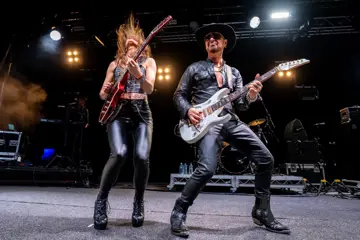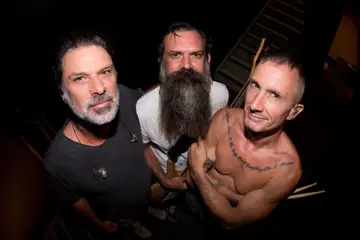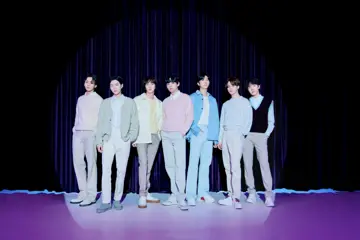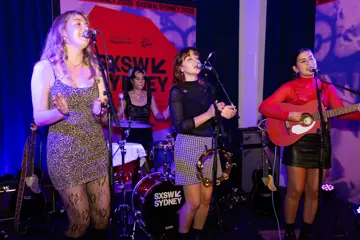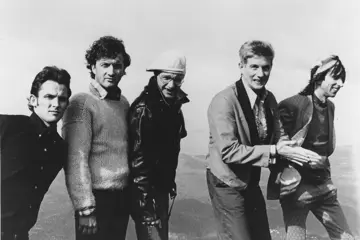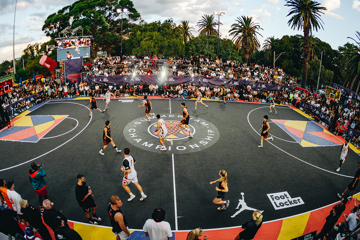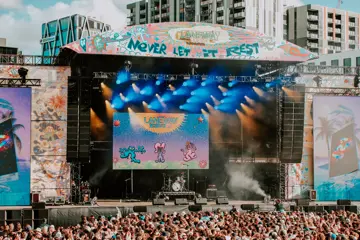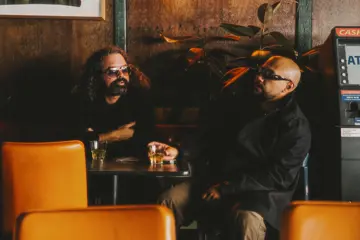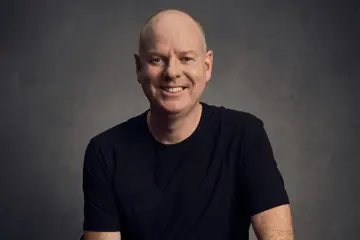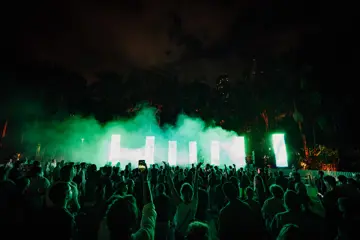If you were just to go by the feature premieres in its lead Essential Fiction program, the inaugural Essential Independents: American Cinema Now festival could better be known as the Straight-To-Video Film Festival. Its key titles are, largely, American genre works that haven't found a local cinema release, nor have enough prestige — or quality — to play at key city film festivals. It opens, for example, with Time Out Of Mind, Oren Moverman's widely panned homeless drama, whose evocative verite and brilliant sound design don't camouflage the fact that its lead Richard-Gere-methods-out role seems steeped in Oscar-chasing celebrity vanity.

Were some of the not-fit-for-release titles more inspired — like, say, Ryan Gosling's bonkers cod-Lynchian directorial debut, Lost River, which is actually secretly pretty great — it wouldn't seem like a big deal. But other new films include the much-troubled, genuinely wonky Jane Got A Gun, whose infamously troubled history — the great director Lynne Ramsay walked away from the project on the first day of shooting — lingers in every frame. Another 'women's Western', Daniel Barber's Civil War-era siege drama The Keeping Room, finds another great Brit Marling performance and some period-evocative mise-en-scene, but ultimately just ends with everyone getting shot.

Then there's the wretched, cliche-ridden, Sundance special I Smile Back, with Sarah Silverman getting serious as a depressed mom who (gasp!) possesses actual sexual desire, with yet another cheesy onscreen 'breakdown' coming. Tumbledown sounds great — a dead folkie's music, performed by Damien Jurado, lives on through his one mythical LP — only it turns out to be a borderline zany rom-com. Less generic is Yosemite, Gabrielle Demeestere's adaptation of two James Franco stories about boyhood recalcitrance, father figures, and coming of age, with Franco himself playing a gentle dad.
Anyone wanting more Franco can watch the deeply banal, strangely compelling vanity project Interior. Leather Bar., a quasi-documentary in which Franco and Travis Mathews seek to recreate the blue footage cut from William Friedkin's gaysploitation 1980 thriller Cruising. The assembled actors are depicted as either randy queers obsessed with Franco, or straight men grappling with 'going gay', the film existing less as shrine to Cruising, but, moreso, to Franco.

Don't miss a beat with our FREE daily newsletter
Cruising itself leads a subsection called Essential New York, where the city shines on celluloid in a host of classics. There's another Friedkin film, The French Connection, plus Midnight Cowboy, The Warriors, Style Wars and John Cassavetes' 1959 directorial debut Shadows, which helped usher in the dawn of New American cinema. And, speaking of debuts: the strongest strain of Essential Independents programming is its Essential Originals, where the first features for now iconic American filmmakers are screened. Gender balance is struck with the debuts of Kelly Reichardt (the rarely screened River Of Grass, in which she felt out her ruralist/minimalist aesthetic), Sofia Coppola (her underrated adaptation of Jeffrey Eugenides' brilliant novel The Virgin Suicides), and Kathryn Bigelow (the ridiculous vampire-action-horror barney Near Dark) playing alongside the Coen Bros' Blood Simple, Jim Jarmusch's Stranger Than Paradise, and Richard Linklater's Slacker — a trio of pictures that forged the filmmakers' singular style on a microscopic budget.
Essential Experiments gladly delivers a pair of experimental films; Lewis Klahr's beautiful, eerie, comic book collagist Sixty Six, and Travis Wilkerson's Machine Gun Or Typewriter?, a more La Jetee-ist work that accesses genre/mystery via still images and ponderous voiceover. In that section there's also Notfilm and Film, a documentary exploration of the 1965 short film, Film, an iconic piece of experimental wonkiness involving a suspicious Samuel Beckett and disinterested Buster Keaton.

The documentary section — called, a little unconvincingly, Essential Intrigue — features another shrine to a much-maligned work: We're Still Here: Johnny Cash's Bitter Tears Revisited. Made to celebrate the 50-year anniversary of Cash's once-reviled concept album on the plight of Native Americans, it's as much chronicle of the recording of a contemporary tribute album — featuring Emmylou Harris, Steve Earl, Gillian Welch et al — as anything else. If that makes it sound a little like an ad, well, spare a thought for anyone suffering through Crazy About Tiffany's, which is literally an advertisement for the jewellery behemoth.
Among the other documentaries, there's familiar feelgood (Fresh Dressed, a bright and colourful shrine to hip hop fashion, and the monetisation thereof, which naturally ties in to Style Wars and The Warriors) and celebrity biography (Mapplethorpe: Look At The Pictures) type flicks. But, then, gladly, there's also In Transit, the final film for iconic direct-cinema don Albert Maysles, who died after its completion, in 2015. Maysles' career-long pursuit of unvarnished human truth on celluloid — first forged with his brother David, and captured for all time in the legendary Grey Gardens — resonates in a simple, unhurried, observationist portrait of passengers riding a train through the American Northwest. Time Out Of Mind may ring false with its Oscar-isation of lives in the margins, but In Transit feels all too true, quietly sitting with a host of humans whose cross-country peregrinations, by rail, all come with their own stories.


